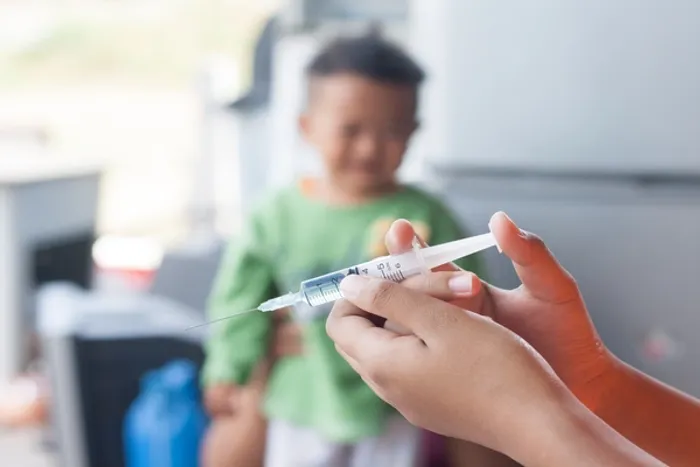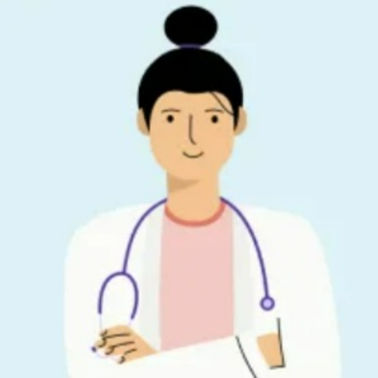Primary Immunodeficiency in Kids: Causes, Signs, and Hope
Learn about primary immunodeficiency in children, including causes, warning signs, and modern treatments that help kids live healthy, active lives.

Written by Dr. Dhankecha Mayank Dineshbhai
Reviewed by Dr. M L Ezhilarasan MBBS
Last updated on 13th Jan, 2026

Introduction
Watching your child battle one infection after another can be a source of immense worry and exhaustion for any parent. While frequent colds are a normal part of growing up, there's a point where they may signal something more serious. This article delves into the world of primary immunodeficiency in kids—a group of rare, often genetic disorders where a part of the body’s immune system is missing or functions improperly. Unlike secondary immunodeficiencies (like AIDS), which are acquired later in life, primary immunodeficiencies (PIs) are present from birth, though symptoms may not appear until infancy or later childhood. Understanding what leads to these conditions is the first step toward getting an accurate diagnosis and effective treatment. We will explore the genetic roots, decode the warning signs that differentiate typical childhood illness from something more concerning, and outline the modern treatment strategies that offer children with PI the opportunity to live healthy, active lives.
What Exactly is a Primary Immunodeficiency (PI)?
A primary immunodeficiency isn't a single disease but rather a broad category of over 400 distinct genetic defects that impair the immune system. Think of the immune system as a highly sophisticated defense network. When this network has a built-in flaw, the body struggles to fight off invaders like bacteria, viruses, and fungi, leading to an increased susceptibility to infections.
The Immune System: Your Child's Personal Bodyguard
A properly functioning immune system has two main branches: the innate system (the first responders) and the adaptive system (the specialised forces). The adaptive system, which is often affected by PIs, includes:
- B-cells: These cells produce antibodies (immunoglobulins), which are like targeted missiles that lock onto and neutralise specific germs.
- T-cells: These cells directly attack and destroy infected cells or help coordinate the B-cell response.
A primary immunodeficiency occurs when there's a defect in the development or function of these key players. For example, a child might be born without the ability to make certain antibodies or without functional T-cells, leaving them vulnerable to severe infections.
Primary Immunodeficiency vs. Secondary Immunodeficiency: What's the Difference?
It's crucial to distinguish between primary and secondary immunodeficiencies. A primary immunodeficiency is caused by an intrinsic defect in the immune system itself, almost always rooted in genetics. It is not contagious. A secondary immunodeficiency, on the other hand, is caused by an external factor that damages an otherwise normal immune system. Common causes include viruses like HIV, chemotherapy for cancer, malnutrition, or certain medications. The treatment approach for each type is fundamentally different.
Consult a Specialist for the best advice
The Root Causes: What Leads to Primary Immunodeficiency?
The vast majority of primary immunodeficiencies are caused by genetic mutations. These are errors in the DNA blueprint that provide instructions for building a healthy immune system.
The Genetic Blueprint: Inherited Factors
Many PIs are inherited, meaning they are passed down from parents to children. The pattern of inheritance can be:
- X-Linked Recessive: The faulty gene is on the X chromosome. This is why conditions like X-linked agammaglobulinemia almost exclusively affect boys, as they have only one X chromosome. Girls, with two X chromosomes, are typically carriers and are usually unaffected.
- Autosomal Recessive: A child must inherit two copies of the defective gene (one from each parent) to develop the disease. Parents are carriers but are not sick themselves. Severe combined immunodeficiency (SCID) can be inherited this way.
X-Linked (Bruton's) Agammaglobulinemia
This was one of the first PIs discovered. Boys with this condition have a mutation in a gene essential for B-cell development. As a result, their bodies produce very few or no B-cells and, therefore, cannot make antibodies. They are particularly susceptible to severe bacterial infections starting after the first 6-9 months of life, when the antibodies they received from their mother have waned.
Severe Combined Immunodeficiency (SCID) - The "Bubble Boy" Disease
SCID is the most serious form of PI, where both T-cells and B-cells are defective. Without a functional adaptive immune system, infants with SCID cannot fight off any infections. Even a common cold can be life-threatening. Prompt diagnosis and treatment with a stem cell transplant are critical for survival.
Common Variable Immunodeficiency (CVID)
CVID is one of the most common symptomatic PIs, but it can be tricky to diagnose because symptoms often don't appear until the teens or early adulthood. It involves a significant defect in antibody production. Individuals with CVID not only have recurrent infections but also a higher incidence of autoimmune disorders and digestive problems.
Spontaneous Genetic Mutations
In some cases, a child can have a PI without any known family history. This occurs when a new, spontaneous genetic mutation happens in the egg, sperm, or very early in fetal development. The child is the first in the family to have the disorder, but they can then potentially pass it on to their own children.
Recognising the Red Flags: Common Signs and Symptoms
How can a parent tell the difference between normal childhood bugs and a potential primary immunodeficiency? The key is the frequency, severity, and unusual nature of the infections.
The 10 Warning Signs of Primary Immunodeficiency (Jeffrey Modell Foundation)
The Jeffrey Modell Foundation created a widely used checklist. If your child has two or more of these warning signs, it's recommended to speak with a paediatrician about a possible immune system evaluation:
- Four or more new ear infections within one year.
- Two or more serious sinus infections within one year.
- Two or more months on antibiotics with little effect.
- Two or more pneumonias within one year.
- Failure for an infant to gain weight or grow normally.
- Recurrent, deep skin or organ abscesses.
- Persistent thrush in the mouth or fungal infection on the skin.
- Need for intravenous antibiotics to clear infections.
- Two or more deep-seated infections such as sepsis, meningitis, or cellulitis.
- A family history of primary immunodeficiency.
Beyond Infections: Other Clues to Watch For
Sometimes, the signs aren't just about infections. The immune system's dysfunction can manifest in other ways, including:
- Autoimmune phenomena: Such as unexplained rashes, joint pain, or low blood counts, where the immune system mistakenly attacks the body's own tissues.
- Chronic diarrhoea: Leading to malabsorption and failure to thrive.
Severe complications from live vaccines (like the rotavirus or MMR vaccine).
Getting a Diagnosis: The Path to Answers
If you suspect your child may have a weak immune system, the diagnostic journey typically starts with your paediatrician and may lead to a specialist called a clinical immunologist.
When to See a Specialist
Don't hesitate to advocate for your child. If your instincts, backed by the warning signs, tell you something is wrong, push for a referral. If symptoms persist beyond what is considered typical, consulting a specialist is crucial. You can consult a paediatric immunologist online with Apollo24|7 to discuss your concerns and determine the next steps.
Key Diagnostic Tests for PI
The initial workup is often a blood test to get a snapshot of the immune system:
- Complete Blood Count (CBC) with Differential: Checks the levels of different white blood cells.
Quantitative Immunoglobulins: Measures the levels of key antibodies (IgG, IgA, IgM, IgE). - Vaccine Antibody Response: Checks if the child has produced antibodies in response to vaccines they have received, like tetanus or pneumococcus.
If these initial tests are abnormal, more specialised tests, such as flow cytometry (to count B and T cells) or genetic testing, will be needed for a definitive diagnosis. Apollo24|7 offers convenient home collection for initial blood tests like CBC and immunoglobulin levels, making the first step in diagnosis less stressful for your child.
Get Your Health Assessed
Treatment and Management: Living a Full Life with PI
A diagnosis of PI is not a dead-end; it's the beginning of a managed care plan that can dramatically improve a child's quality of life.
Immunoglobulin Replacement Therapy
This is the cornerstone of treatment for many antibody-deficient PIs. Immunoglobulin (antibodies collected from healthy donors) is infused into the patient, either intravenously (IVIG) every 3-4 weeks or subcutaneously (SCIG) weekly, often at home. This therapy provides the antibodies that the child cannot make themselves, offering crucial protection against infections.
Antibiotics and Antiviral Medications
Prophylactic (preventive) antibiotics are often used to ward off infections before they start. They are also used aggressively to treat infections that do occur.
Stem Cell Transplantation: A Curative Option
For the most severe PIs, like SCID, a haematopoietic stem cell transplant (also known as a bone marrow transplant) can be a cure. It involves replacing the child's defective immune system with a healthy one from a matched donor. Gene therapy is also an emerging, promising option for specific disorders.
The Emotional Journey: Supporting Your Child and Family
Receiving a chronic diagnosis for your child is emotionally challenging. Connecting with support groups, such as the Immune Deficiency Foundation, can provide invaluable resources and a community of families who understand the unique challenges and triumphs of living with PI. Focusing on what your child can do, rather than their limitations, is key to fostering resilience and a positive self-image.
Conclusion
Understanding what leads to primary immunodeficiency in kids empowers parents to be proactive advocates for their child's health. While the journey begins with a genetic misstep, it does not define a child's future. Recognising the red flags—those recurrent, severe infections that stand out from normal childhood illness—is the critical first step. Modern medicine has transformed the prognosis for children with PI. With accurate diagnosis, advanced treatments like immunoglobulin replacement, and the potential for curative stem cell transplants, these children can not only survive but thrive. If the warning signs resonate with your experience, take that crucial next step: talk to your paediatrician and seek the opinion of a specialist. The path to answers and effective management is clearer than ever before.
Consult a Specialist for the best advice
Consult a Specialist for the best advice

Dr. Barnali Das. Senior Child Specialist
Paediatrician
24 Years • MBBS, DCH, PGT (SGRH, New Delhi),MRCPCH (United Kingdom)
Guwahati
Apollo Hospitals G S Road, Guwahati
(50+ Patients)

Dr Yaja Jebaying
Paediatric Gastroenterologist
9 Years • MBBS, MD PEDIATRICS, FELLOWSHIP PEDIATRIC GASTROENTEROLOGY AND HEPATOLOGY AND LIVER TRANSPLANTATION
Delhi
Apollo Hospitals Indraprastha, Delhi
(25+ Patients)

Dr Anita Arora
Paediatrician
40 Years • MBBS,DCH,MD(PAEDIATRICIAN)
Noida
Apollo Hospitals Sector 26, Noida

Dr. Shravanti Bhimavarapu
Paediatrician
10 Years • MBBS, MD (Paediatrics)
Hyderabad
Apollo Hospitals Jubilee Hills, Hyderabad

Dr. Anita Bakshi
Paediatrician
30 Years • MBBS, MD
Delhi
Apollo Hospitals Indraprastha, Delhi
(25+ Patients)
Consult a Specialist for the best advice

Dr. Barnali Das. Senior Child Specialist
Paediatrician
24 Years • MBBS, DCH, PGT (SGRH, New Delhi),MRCPCH (United Kingdom)
Guwahati
Apollo Hospitals G S Road, Guwahati
(50+ Patients)

Dr Yaja Jebaying
Paediatric Gastroenterologist
9 Years • MBBS, MD PEDIATRICS, FELLOWSHIP PEDIATRIC GASTROENTEROLOGY AND HEPATOLOGY AND LIVER TRANSPLANTATION
Delhi
Apollo Hospitals Indraprastha, Delhi
(25+ Patients)

Dr Anita Arora
Paediatrician
40 Years • MBBS,DCH,MD(PAEDIATRICIAN)
Noida
Apollo Hospitals Sector 26, Noida

Dr. Shravanti Bhimavarapu
Paediatrician
10 Years • MBBS, MD (Paediatrics)
Hyderabad
Apollo Hospitals Jubilee Hills, Hyderabad

Dr. Anita Bakshi
Paediatrician
30 Years • MBBS, MD
Delhi
Apollo Hospitals Indraprastha, Delhi
(25+ Patients)
Frequently Asked Questions
Can a child develop a primary immunodeficiency later in life, or is it always present from birth?
While the genetic defect is present from birth, the symptoms of some PIs, like common variable immunodeficiency (CVID), may not appear until adolescence or even adulthood. The immune system can sometimes compensate for a while before becoming overwhelmed.
Are primary immunodeficiencies contagious?
No, PIs are genetic disorders and cannot be 'caught' from or spread to another person like a cold or flu.
If I have one child with a PI, will my other children have it?
It depends on the specific genetic pattern of the PI. For autosomal recessive disorders, each subsequent child has a 25% chance of being affected. For X-linked disorders, sons have a 50% chance of being affected, and daughters have a 50% chance of being carriers. Genetic counselling is highly recommended for families.
What is the life expectancy for a child with a primary immunodeficiency?
With modern treatments, especially early diagnosis and consistent immunoglobulin therapy, the life expectancy for most children with PIs is excellent. They can expect to live full, productive lives into adulthood.
Can children with PI go to school and participate in normal activities?
Yes, absolutely! The goal of treatment is to allow for a normal childhood. With proper management, most children can attend school, play sports, and participate in social activities. Good hygiene practices are emphasised to reduce exposure to germs.
